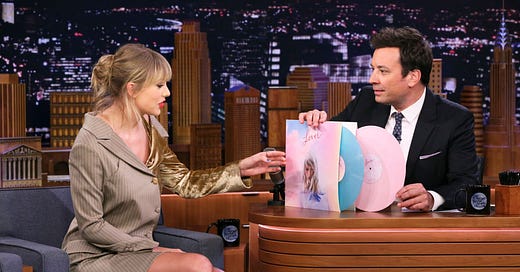Vinyl Records Are Sneakers Now
Record Store Day is upon us, which means a superfan frenzy over a bevy of limited-edition drops. Sound familiar?
Your weekly dose of music, media & money. Click here for a full subscription.
Taylor Swift has shilled everything from CapitalOne credit cards to Keds sneakers over the years. Her commercial appeal helped her earn $80 million in 2021, making her the highest-paid woman in music. Amid the pandemic, though, Swift’s top product is something that seems to hav…
Keep reading with a 7-day free trial
Subscribe to ZOGBLOG by Zack O'Malley Greenburg to keep reading this post and get 7 days of free access to the full post archives.





